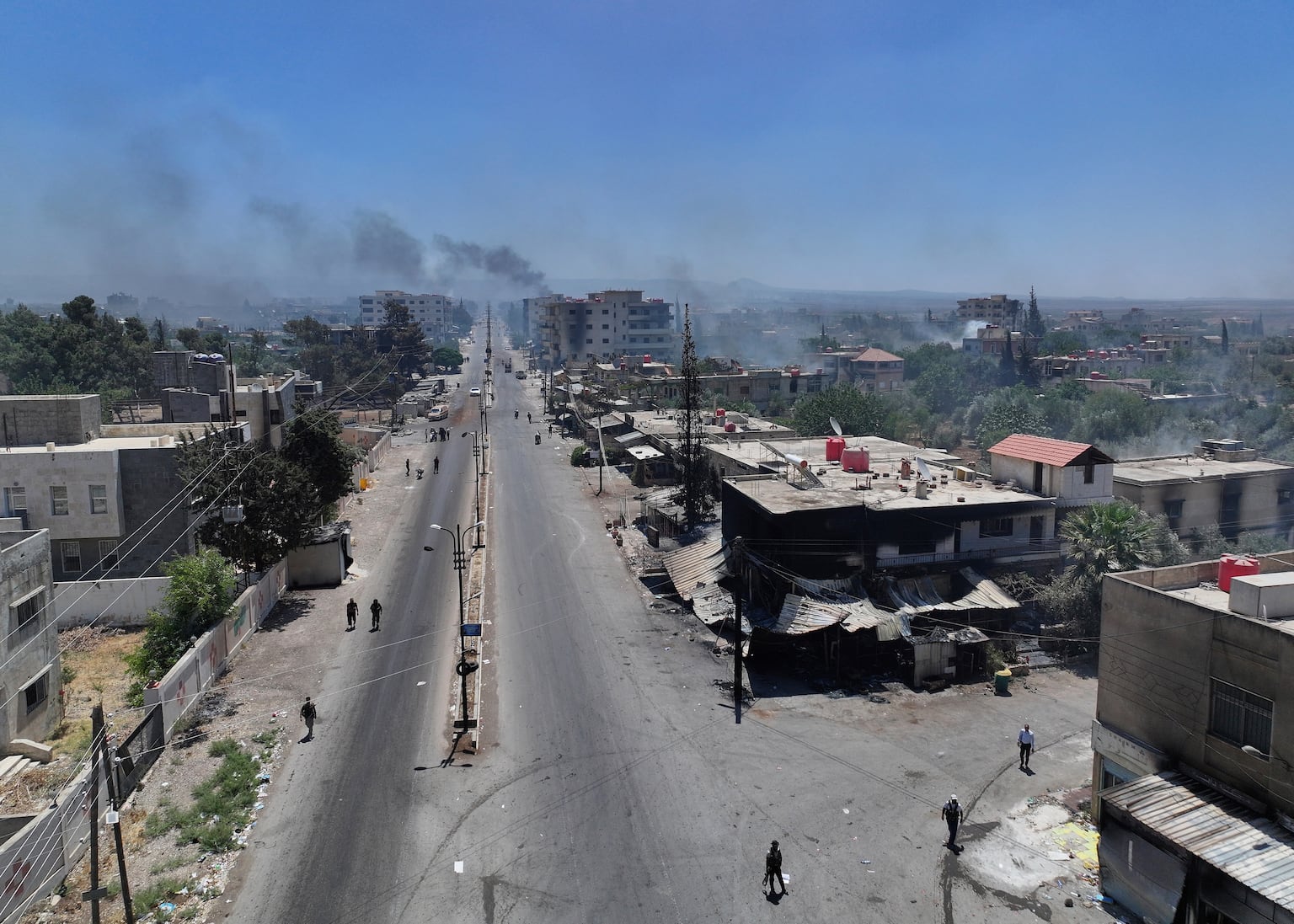Escalation of Violence in Southern Syria
Tensions have escalated in southern Syria as renewed clashes between Druze armed groups and Bedouin clans have led to a significant humanitarian crisis. The Syrian government forces, who had previously withdrawn from the province of Sweida following a ceasefire agreement, are now preparing to return to the region. This move comes after the initial truce failed to prevent further violence, resulting in the displacement of tens of thousands of people.
The ceasefire, announced on Wednesday, was meant to halt the ongoing violence that had plagued the area earlier in the week. However, it did not succeed in stopping the fighting entirely. According to two Syrian officials, negotiations were underway with Druze factions to allow government forces to re-enter the area and restore stability. An agreement was reportedly reached, but the deployment was delayed without an official explanation.
Humanitarian Crisis Deepens
The ongoing conflict has left many families displaced, and the United Nations has struggled to deliver essential humanitarian and medical aid due to the continued clashes. Tens of thousands of people remain affected by the violence, with critical services such as water, electricity, and healthcare collapsing in Sweida. Telecommunications systems are also severely disrupted, adding to the challenges faced by the local population.
Tolong support kita ya,
Cukup klik ini aja: https://indonesiacrowd.com/support-bonus/
Clashes began on Sunday between Druze militias and Sunni Muslim Bedouin tribes. Government forces intervened, ostensibly to restore order, but they ended up supporting the Bedouins against the Druze. In response, Israel launched air strikes against Syrian forces, claiming to defend the Druze community. These attacks targeted convoys of government fighters and even struck the Syrian Defence Ministry headquarters in central Damascus.
International Involvement and Regional Reactions
The Druze community in Israel is considered a loyal minority and often serves in the Israeli military. However, their involvement in the conflict has drawn mixed reactions from regional leaders. A truce mediated by the US, Turkey, and Arab countries was announced on Wednesday. Under the accord, Druze factions and clerics were to maintain internal security in Sweida as government forces withdrew, according to Syria’s interim president Ahmad al-Sharaa.
Despite the truce, clashes flared again on Thursday between Druze and Bedouin groups in parts of Sweida. State media reported that Druze militias carried out revenge attacks against Bedouin communities, leading to another wave of displacement. The governor of the neighboring province of Daraa stated that over 1,000 families had been displaced to the area from Sweida due to “attacks on Bedouin tribes by outlaw groups.”
Regional Tensions and Calls for Intervention
The UN’s migration agency reported that nearly 80,000 people had been displaced since the clashes began on Sunday. Essential services, including water and electricity, have collapsed in Sweida, while health facilities in Sweida and Daraa are under severe strain.
Bedouin groups and supporters arrived on Friday from other areas of Syria to join the fight. On the outskirts of Sweida, groups of them gathered in front of buildings that had been set ablaze. In Israel, members of the Druze community called for intervention to protect their compatriots in Syria. However, Druze leaders in other regions have rejected Israeli involvement.
The spiritual leader of the Druze community in Lebanon, Sheikh Sami Abi al-Muna, criticized the sectarian clashes in Syria, stating that they provide an excuse for Israeli intervention. He emphasized that the Druze do not accept protection from Israel, believing it could harm their history and identity.







